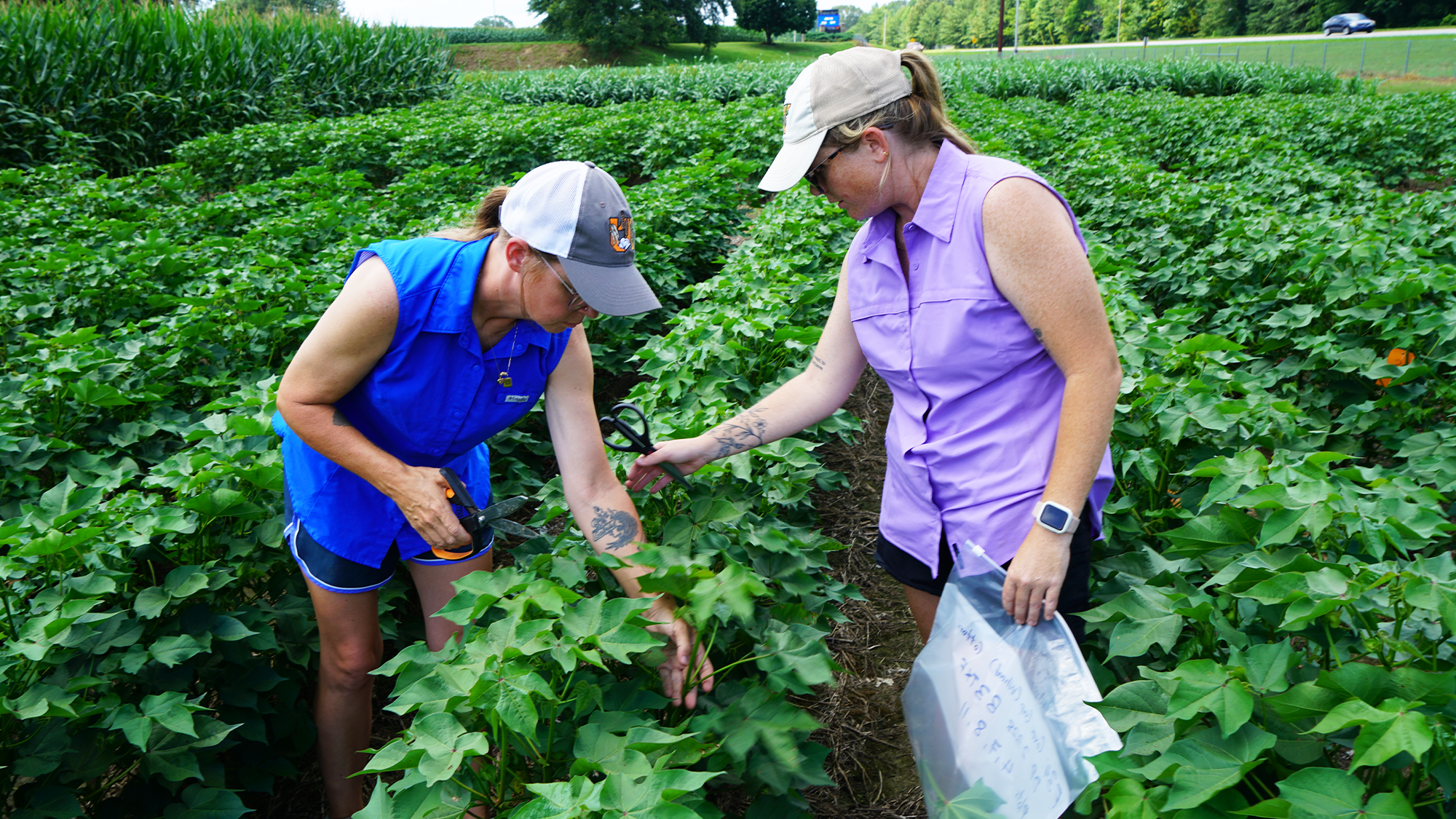
Findings Could Improve Crop Production Practices, Overall Yield
JACKSON, Tenn. – Soil microbial communities play a vital role in plant health, influencing root development, disease resistance, nutrient and soil water uptake and more. In a pioneering study, the University of Tennessee Institute of Agriculture (UTIA) is partnering with universities across the country to investigate how these microbial communities impact cotton development and overall yield across diverse climates, agricultural practices and environmental stressors.
In addition to extreme conditions such as drought and flooding, cotton crops are often affected by plant diseases like cotton leaf crumple virus and cotton leafroll dwarf virus, as well as insect infestations from whiteflies, aphids and others. While these factors often cause only minimal damage individually, their combined effect with abiotic and environmental stressors can hinder crop growth and disrupt the soil rhizosphere, or the area around a plant’s root system containing microbial communities.
To assess the health of the soil rhizosphere in varying environments and agricultural practices, as well as to determine the beneficial or harmful roles of different microbes, research teams are using advanced sequencing technologies to analyze leaf and soil samples from geographically diverse areas. This includes the low desert of Palo Verde Valley, California; the high desert of Safford, Arizona; the High Plains of Lubbock, Texas and the Cotton Belt in West Tennessee, each with distinct elevations, temperatures, soil compositions, precipitation rates, humidity levels and more.
“Few studies have explored the relationship between microorganisms, agricultural practices such as cover crops and select cotton varieties. This research is only possible thanks to the collaboration of universities nationwide,” says Avat Shekoofa, crop physiology researcher at UTIA. “Our data has the potential to better shape agricultural and plant breeding practices, as well as help farmers incorporate soil microbial considerations into their cotton operations regardless of their location or environmental challenges.”
“Crop production is complex at both macro and micro levels,” says Judith Brown, project lead and plant pathologist from The School of Plant Sciences at the University of Arizona. “As farmers continue to navigate agronomic, economic, and environmental pressures, there’s a clear need for reliable assessment tools for soil health.”
Randy Norton, Extension agronomist and cotton specialist with the University of Arizona, hopes their findings will improve yield and long-term sustainability. “The more control we can give to farmers, the better off their operations will be at all stages of production.”
The project is led by the University of Arizona, in collaboration with UTIA, Texas A&M University and the University of California. The research is made possible thanks to support from Cotton Incorporated. Preliminary data collected in 2025 will be used to formulate a proposal to the USDA National Institute of Food and Agriculture’s Agriculture and Food Research Initiative Commodity Board Co-funding Topics for further research in the coming years.
The University of Tennessee Institute of Agriculture is comprised of the Herbert College of Agriculture, UT College of Veterinary Medicine, UT AgResearch and UT Extension. Through its land-grant mission of teaching, research and outreach, the Institute touches lives and provides Real. Life. Solutions. to Tennesseans and beyond. utia.tennessee.edu.